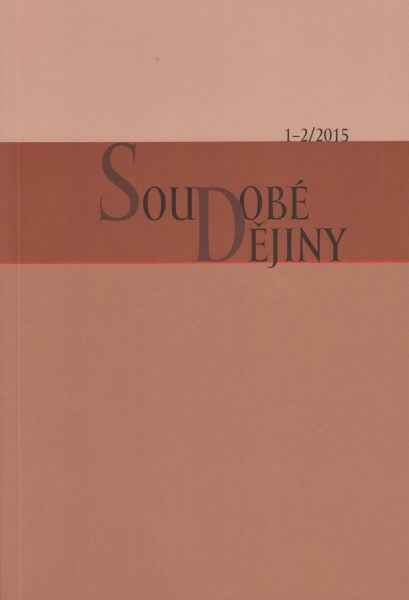Jako nedohraný folkový song
Like a Folk Song Not Played to the End
Author(s): Jiří SmlsalSubject(s): History
Published by: AV ČR - Akademie věd České republiky - Ústav pro soudobé dějiny
Summary/Abstract: The reviewer presents Přemysl Houda’s book as a whole, and concludes that, in view of its thematic breadth but short length, some relevant topics and arguments could not be developed satisfactorily. Houda explores folk music mainly from the standpoint of its relation to society and the powers that be. He therefore follows on from the traditional line of interpretation about certain areas of popular music in Communist Czechoslovakia having been ‘little islands of freedom’, remnants of independent thinking, and well-springs of opposition attitudes. The development of popular music, however, represents for him a prelude to social change, and folk music serves him as a means to gauge the nature, limits, and internal contradictions of the ‘Normalization’ system. The reviewer takes issue with Houda’s accent on the folk-music audience having been a special community characterized by a critical attitude towards the current régime, and he emphasizes that folk-music audiences lacked the attributes of a sub-culture, did not otherwise express their critical attitude, and did not, as a group, become the target of systematic persecution. On the other hand, he praises Houda’s observation that folk musicians legitimized their critical mission in lyrics by using themes and forms acceptable to the authorities. Houda, according to the reviewer, has usefully demonstrated, using the example of folk music, the confl ict and the parallelism of the dictatorship and free activities, and has thus revealed the internal contradictions and fl exible boundaries of the Normalization system as well as its insurmountable limits. Though Houda raises important questions, much in his book remains unanswered, and ultimately it brings to mind a song that has not been played to the end.
Journal: Soudobé Dějiny
- Issue Year: XXII/2015
- Issue No: 1-2
- Page Range: 181-185
- Page Count: 5

